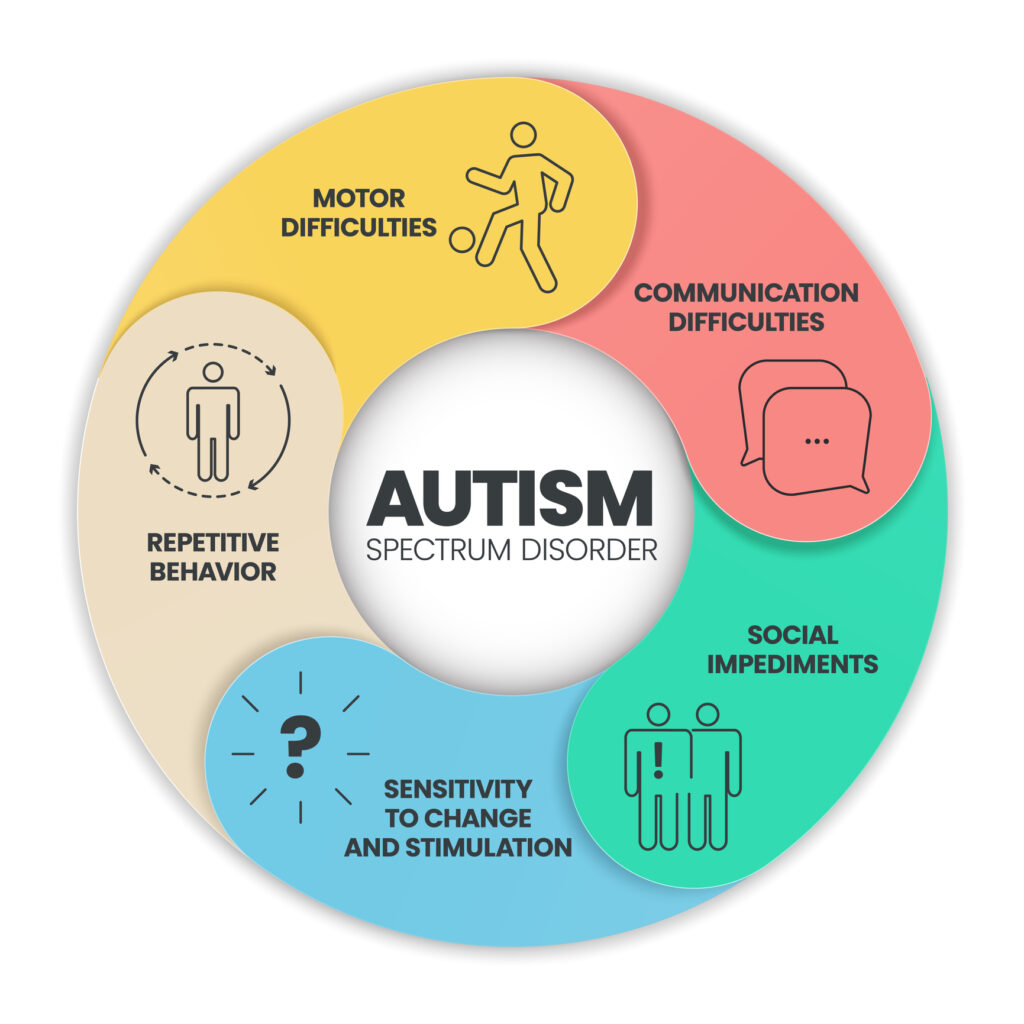No Proof That Mother's Illness During Pregnancy Creates Autism
Early diagnosis and intervention is most valuable and can improve actions, skills and language advancement. Though children typically do not outgrow autism spectrum problem signs and symptoms, they may find out to function well. Some children reveal indicators of autism range condition in very early infancy, such as decreased eye call, lack of reaction to their name or Autism diagnostic assessment indifference to caretakers. Various other youngsters may establish typically for the very first couple of months or years of life, however then unexpectedly end up being taken out or hostile or lose language abilities they have actually already obtained.
- These locations of research have actually exposed interesting connections between the body immune system, metabolism, and neurodevelopment.CDC is currently performing a follow-up research of older kids that were signed up in SEED to identify the health and wellness, operating, and demands of individuals with ASD and various other developmental impairments as they develop.There continue to be several youngsters coping with ASD that require solutions and support, both currently and as they become adolescence and their adult years.
This suggests autistic people may have one or more gene variants that contribute in their brain distinctions. It's most likely a combination of genetics and specific points connected to maternity, labor and distribution (what you may see described as "environmental elements" or "prenatal occasions"). These aspects all connect to bring about the mind differences we see in autism.
Puzzling By Familial Factors Affects The Associations In Between Maternal Health And Wellness And Autism
As we have actually explored throughout this comprehensive overview, the causes of Autism Range Disorders are diverse and facility. Our existing understanding points to an elaborate interplay of genetic predispositions, environmental impacts, neurological distinctions, and prospective immunological and metabolic aspects. While these immunological and metabolic factors provide intriguing methods for study, it is necessary to keep in mind that their exact roles in ASD development are still being clarified. Additional research study is needed to totally comprehend how these factors connect with genetic and environmental impacts in the context of ASD. Understanding the causes of ASD is important for numerous factors.
There continue to be several youngsters coping with ASD that require services and assistance, both currently and as they become adolescence and their adult years. Individuals with ASD might act, interact, connect, and discover in manner ins which are various from most other people. There is commonly absolutely nothing about how they look that establishes them in addition to other individuals. As an example, some individuals with ASD may have Neurodevelopmental condition advanced conversation skills whereas others may be nonverbal. Some people with ASD require a great deal of aid in their every day lives; others can function and cope with little to no support. While it might seem that eliminating particular foods can ease your kid's symptoms, it may in fact create even more damage.

Recurring Behaviors
These differences provide important understandings right into the neurodevelopmental processes that may add to ASD symptoms. There is a substantial chance for research study when it concerns understanding the hereditary danger factors for autism also, Frazier includes. First autism testing typically includes examining that a youngster is fulfilling developmental turning points or if there are developmental hold-ups.
CDC is currently funding and working on among the largest United States studies to day, called Study to Discover Early Advancement (SEED). As a moms and dad, you currently have what it takes to aid your young child find out and expand. CDC has created products to help you track your kid's developing turning points and share that progression, or any kind of problems, with your kid's physician at every check-up. Ask a person with autism or their caretaker concerning their strengths and demands. Understanding a person's limits, communication preferences, and sensory needs adds to considerate and meaningful interactions.
